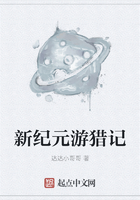but "mathematical schemata are capable of characterisation which is adequate even though divorced from experience."The last statement is more or less true of every abstraction, but does not by any means prove that it is not abstracted from reality. In world schematism pure mathematics arose out of pure thought -- in the philosophy of nature it is something completely empirical, taken from the external world and then divorced from it. Which are we to believe?
IV.
WORLD SCHEMATISM "A ll-embracing being is one. In its self-sufficiency it has nothing alongside it or over it. To associate a second being with it would be to make it something that it is not, namely, a part or constituent of a more comprehensive whole. Due to the fact that we extend our unified thought like a framework, nothing that should be comprised in this thought-unity can retain a duality within itself. Nor, again, can anything escape this thought-unity... The essence of all thought consists in bringing together the elements of consciousness into a unity {D. Ph. 16} ... It is the point of unity of the synthesis where the indivisible idea of the world came into being and the universe, as the name itself implies, is apprehended as something in which everything is united into unity " {17}.
Thus far Herr Dühring. This is the first application of the mathematical method:
"Every question is to be decided axiomatically in accordance with ****** basic forms, as if we were dealing with the ****** ... principles of mathematics" {224}.
"All-embracing being is one." If tautology, the ****** repetition in the predicate of what is already expressed in the subject -- if that makes an axiom, then we have here one of the purest water. Herr Dühring tells us in the subject that being embraces everything, and in the predicate he intrepidly declares that in that case there is nothing outside it. What colossal "system-creating thought" {525}!
This is indeed system-creating! Within the space of the next six lines Herr Dühring has transformed the oneness of being, by means of our unified thought, into its unit. As the essence of all thought consists in bringing things together into a unity, so being, as soon as it is conceived, is conceived as unified, and the idea of the world as indivisible; and because conceived being, the idea of the world , is unified, therefore real being, the real world, is also an indivisible unity. And with that "there is no longer any room for things beyond, once the mind has learnt to conceive being in its homogeneous universality" {D. Ph. 523}.
That is a campaign which puts Austerlitz and Jena, Königgrätz and Sedan completely in the shade. [36] In a few sentences, hardly a page after we have mobilised the first axiom, we have already done away with, cast overboard, destroyed, everything beyond the world -- God and the heavenly hosts, heaven, hell and purgatory, along with the immortality of the soul.
How do we get from the oneness of being to its unity? By the very fact of conceiving it. In so far as we spread our unified thought around being like a frame, its oneness becomes a unity in thought, a thought-unity;for the essence of all thought consists in bringing together the elements of consciousness into a unity.
This last statement is simply untrue. In the first place, thought consists just as much in the taking apart of objects of consciousness into their elements as in the putting together of related elements into a unity.
Without analysis, no synthesis. Secondly, without ****** blunders thought can bring together into a unity only those elements of consciousness in which or in whose real prototypes this unity already existed before. If I include a shoe-brush in the unity mammals, this does not help it to get mammary glands. The unity of being, or rather, the question whether its conception as a unity is justified, is therefore precisely what was to be proved; and when Herr Dühring assures us that he conceives being as a unity and not as twofold, he tells us nothing more than his own unauthoritative opinion.
If we try to state his process of thought in unalloyed form, we get the following: I begin with being. I therefore think what being is.
The thought of being is a unified thought. But thinking and being must be in agreement, they are in conformity with each other, they "coincide".
Therefore being is a unity also in reality. Therefore there cannot be anything "beyond". If Herr Dühring had spoken without disguise in this way, instead of treating us to the above oracular passages, his ideology would have been clearly visible. To attempt to prove the reality of any product of thought by the identity of thinking and being was indeed one of the most absurd delirious fantasies of -- a Hegel.
Even if his whole method of proof had been correct, Herr Dühring would still not have won an inch of ground from the spiritualists. The latter would reply briefly: to us, too, the universe is ******; the division into this world and the world beyond exists only for our specifically earthly, original-sin standpoint; in and for itself, that is, in God, all being is a unity. And they would accompany Herr Dühring to his other beloved celestial bodies and show him one or several on which there had been no original sin, where therefore no opposition exists between this world and the beyond, and where the unity of the universe is a dogma of faith.















